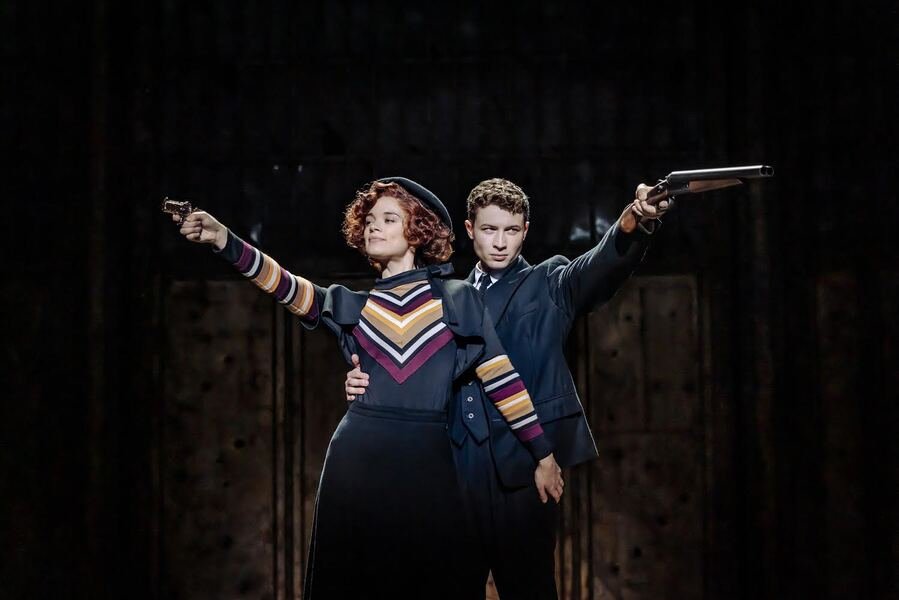This is rather an odd show that cannot make its mind up if it is a love story with a twist, or the story of two twisted lovers.
Directed by Nick Winston, Bonnie and Clyde does not really need much advance knowledge of the two 1930s outlaws who are probably best known because of the way they were finally killed together in their car by the police.
The show actually starts with this – they are dead, having been ambushed and basically executed.
With lots of flashing lights and bangs, as you would expect from a show about gangsters and murdering police and innocent people, this will keep your attention throughout the production which relies on simple but effective sliding and descending panels to make different scenes.
The tale is about two wannabees who want to be famous, one as a singer, actress and poet, and the other as a gangster. This is all set against the 1930s depression in Texas where farmers lose their properties to the banks, sharecroppers lose their livelihoods, and people rely on soup kitchens, live under bridges and we are encouraged to think it is not surprising that they turn to crime.
So we have rather a didactic little thing going on here with the failed American Dream, religion, some fine gospel singing from Jaz Ellington and bible bashing, corrupt prison guards etc etc etc. Ultimately these are two wronguns and murderers, no matter how much they fancy each other and cannot wait to get into each other’s pants.
We have fine singing from Katie Tonkinson as Bonnie, capturing both the false innocence of the movie era, the southern bluesy jazzy vibe, while Clyde from Alex James-Hatton is something of a rocker (as well as fast car and gun lover) although whether the ukulele quite fits with the Raising Hell image is debatable.
They are a sassy and cocky pair of narcissists who are joined by Clyde’s waster of a brother (not as famous as Clyde) despite the attempts by his hair salon owner wife Blanche to keep him from inevitable death. Similarly, the police officer who has always loved Bonnie, and tries to save her, Ted, played by Daniel Reid-Walters.
There is another odd balance between the women who seem to have much more sense than the men (of course as this is the era of wokeness) and they also provide the few bits of light relief and humour. The hairdressing salon is reminiscent of the Cook County Jail number from Chicago.
It is all enjoyable although lots of opportunities are lost, such as making more use of the photographs of the couple that they took of each other which are only occasionally used. It could also have been more of a meaningful comment on fame culture, so blighting today’s society.
Until March 30.
